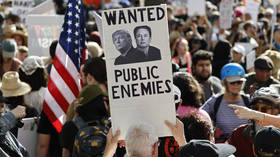Remember, remember, the fifth of November! Have we forgotten the true meaning behind Guy Fawkes festivities?
Guy Fawkes was famously hanged, drawn and quartered with other surviving Catholic traitors opposite Westminster. Hundreds of lives were saved and the date remembered ever since, but do we know the true story of the celebrations?
On November 5 every year, millions of British families and friends flock to firework displays in parks and recreation grounds. We attend crackling bonfires, eat sugary red toffee apples (that stick to our teeth), and write names with hand-held sparklers in the cold autumnal air. Familiar? Or perhaps many of us have forgotten the history surrounding one of the most celebrated annual events in the calendar. The reason of course… is Guy Fawkes, and it’s here where school history lessons might help.
Guy Fawkes was a famous failed terrorist who was born in York, England. In the year 1605, along with 13 other men, he tried to blow up parliament, aiming to kill Protestant King James I and his Protestant government. Some 36 barrels of gunpowder were gathered under the House of Lords but the group were unsuccessful and the plot was foiled. But let’s hold the story there.
Some see Guy Fawkes in a much different light… Despite it being a crime to be a Catholic during Elizabeth I’s reign, Fawkes converted to Catholicism when he was a teenager – and it’s here where the real story begins. It’s been 400 years since the foiled plot and, centuries later, Brits burn effigies of the failed terrorist on blazing bonfires – but do lovers of such festivities really know the reality of Fawkes treason and anti-government rebellion? Perhaps it is lost in a Disney-type fairy tale.
Despite it being an event rooted in remembrance and a potential disaster, perhaps most will enjoy tonight’s annual ritual and think that it is more about sticky toffee apples and exploding rockets than an insight into monarchical religious turmoil and a date steeped in British history. Maybe it’s time to go back to school.
As we celebrate someone’s failure and failed mass murder pact in such a glorious way, it seems the original message is lost, as the character of Fawkes transforms from a religious extremist to an anti-elitist underdog. As centuries pass and childhood school lessons fade away, we are in danger of historical shifts. By turning people into celebrated icons in history, we run the risk of morphing them into someone they weren’t. It’s feasible that 17th century politics aren’t so cool.
Guy Fawkes' Night is possibly the weirdest festival I have ever heard of. "Let's celebrate an attempted terrorist coup that was motivated by religious hatred by burning some random stuff and throwing explosives."
— Chris Lawler 🏈🏴🏞 (@HairyLenny) November 5, 2019
But how we remember the famous Guy Fawkes today is a fascinating look into how we view historical events from centuries ago. Over time, facts can soon become fiction when society blurs lines and culture becomes twisted like an innocent game of Chinese whispers.This was a political event in 1605 involving religious and social division. Now, 400 years later in divided “Brexit Britain,” it seems we might not have progressed too much further. Perhaps blowing up Boris Johnston and Jeremy Corbyn, among 650 members of parliament, might be too extreme, but the quest to wipe out the ruling elite still continues today. Weekly protests outside parliament prove that.
Has society moved on? In the 17th century, Catholics were persecuted and barred from owning land or voting. Because of this, Guy Fawkes aimed to destroy parliament with the aim of producing a dramatic political shift, installing a new Catholic monarch and ending Protestant rule. Today, we still have religious extremists with similar dogmatic mantras – to impose their beliefs on others. When it comes to the good old Conservative and Labour parties, perhaps gunpowder will be the only option? (I tease) We might have more equality, but millions of us still want change.
So, if you are attending a bonfire or firework party tonight, let’s agree that it’s not just all about the past, Mr Fawkes and a historical rebellion, but an ongoing fight and social message that we are just as divided 400 years later.
By Martyn Andrews, RT senior culture editor















